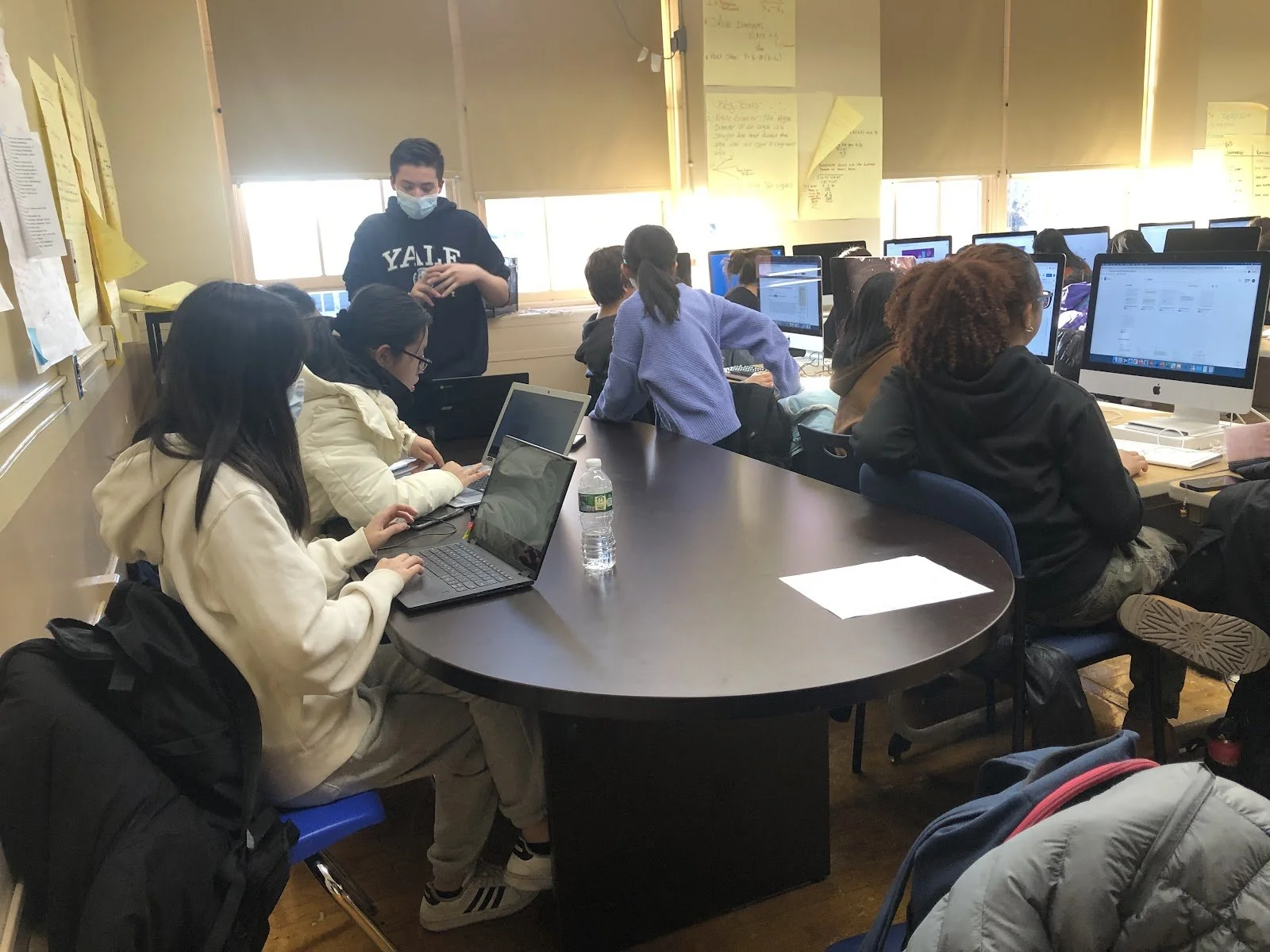Reenergized Debate Team Earns Accolades
The debate team researches their topic: “Resolved: New York City should substantially reallocate resources from police departments to social services.” Photo: Vienna Chen
By SIBYL ZHENG
“A lot of people died, and a lot more (are) going to die unless he gets a lot smarter a lot quicker.”
“There’s nothing smart about you, Joe.”
Aggressive and rude personal attacks like these, taken from the 2020 presidential debate between Donald Trump and Joe Biden, could give you the wrong impression about how rhetorical battles are supposed to go. In truth, they have nothing in common with what you’ll encounter at a Midwood debate team practice.
In competitive debate, the main purpose isn’t to attack your opponents but rather to convince the judge, with four speeches per round. Aggressive comments do poorly while well-reasoned arguments succeed.
A skilled debater also masters flowing, when you jot down your opponent’s arguments in their speeches so you can respond to them in your own speech. This is important because if you don’t respond, the judge assumes the opposing argument cannot be refuted.
“People might misunderstand debate and think it’s opinionated and that debaters have a say,” Fatima said. “But we technically don’t. We speak facts!” Debaters have to be ready to take either side of an argument, even if they don’t personally agree with it.
In the January tournament topic, “Resolved: New York City should substantially reallocate resources from police departments to social services,” varsity captain Rikza Fatima ‘24 and Delena Pierre ’23 placed first, undefeated. Amaya Williams ’25 placed third as a top speaker. In the novice division, sophomore teammates Irena Beznos and Maximilian Kulec placed fourth, with Beznos earning fourth top speaker, and sophomore teammates Victoria Levin and Safowana Islam placed fifth.
This tournament was the first online competition of the season, and for many of the new debaters, it was their first time debating over the internet.
Debaters generally prefer in-person tournaments. “My partner and I can have better communication [face-to-face],” said Beznos. “I don't have to wait for them to reply in text.”
The debate topics change every year, and some resonate in unexpected ways.
In the February 2022 topic “Resolved: On balance, Turkey’s membership is beneficial to the North Atlantic Treaty Organization,” one of the arguments involved Turkey supporting a genocide of Uyghur Muslims.
“I remember I spoke to someone a day before my tournament who was a Uyghur Muslim himself,” Fatima said. “I remembered that person’s words, what he and his family went through. He was an immigrant who came to America in hopes of surviving. As I was debating, out of nowhere I started projecting my voice more because the story he told me the day before, crying, was running through my mind.”
There are many rewarding aspects of debate. Meeting opposing teams can be enlightening, and the feeling of winning can be “refreshing,” Williams said, and “very fulfilling,” said Beznos.
“[Debate] is what shaped me into the person I am. It allowed me to get a voice, and I think a special part about debate is for you to get out there and explore yourself,” Fatima said. “It's not about fighting or arguing, it's about talking about important world issues.”
The Covid-19 era of online schooling hurt the team. “We experienced a shift,” Fatima said. There were only 14-15 debaters, and “the team kind of died down.”
However, with the return to in-person classes, many more students joined.
“Rikza came into my AP Seminar class, and I already had the idea of joining, so I thought ‘why not?’” said Beznos. “It's actually pretty fun.”
Ling Xin Jiang ‘24 was inspired by TV law shows. “They debated each other on important cases and it was pretty interesting, so I stepped into the debate team and had a lot of fun,” said Jiang. “I feel like debate has really helped me with speaking comfortably in public settings.”
Debate does build “better public speaking skills,” Abigaelle Said ’25 said, and “better research skills,” Isabella Mason ’25 added.
Co-captain Devin Morales ’24 said, “If you put in the hard work, if you sacrifice, positive outcomes will always follow.”

